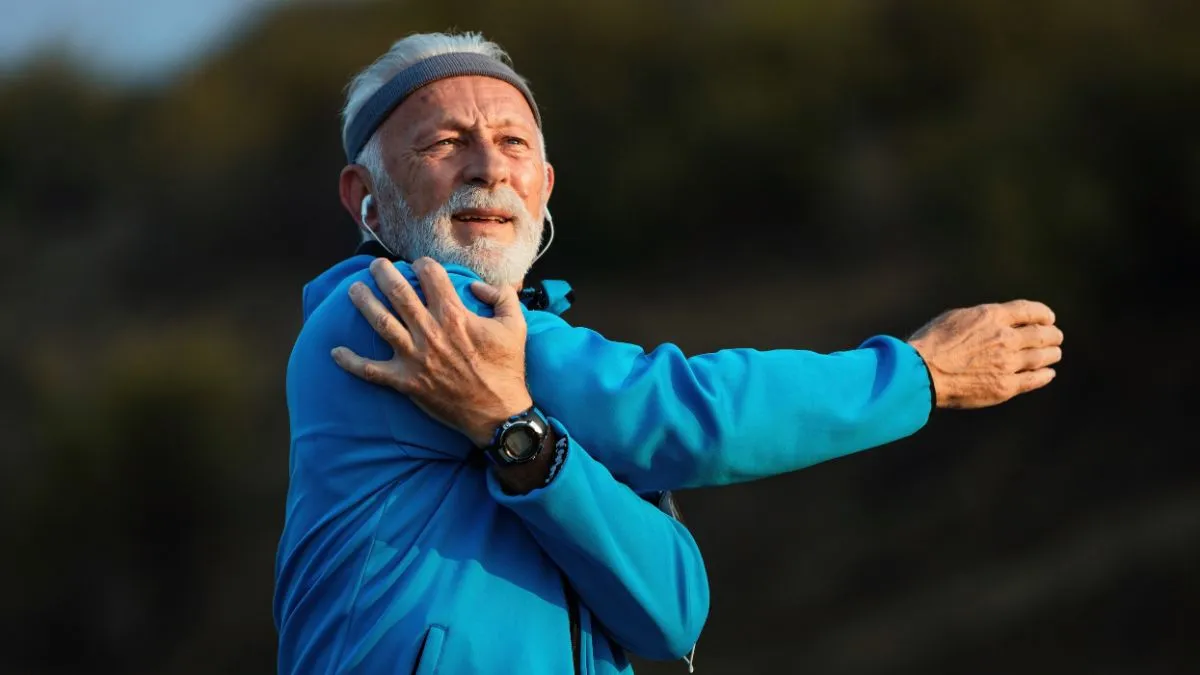
Most people notice their skeleton only after something cracks. Yet research in Punjab shows osteoporosis in almost one-third of post-menopausal women and low bone mass in nearly half of the rest. Hip-fracture studies estimate more than 120 breaks each year for every 100,000 Indians over fifty, a burden that will swell as the country ages.
Table of Content:-
Four Challenges That Are Unique to Indian Skeletons
Dr Naveen Palla, MBBS, MS (Ortho), Sr. Consultant Orthopaedician at Apollo Hospitals, Visakhapatnam, shares four main bone health-related challenges that are prevalent in Indians:
- First challenge begins on the plate: Adults need about a gram of calcium daily, but national diet surveys find intakes stuck around half that amount.
- Second comes the sunshine paradox: Despite India’s latitude, urban living, pollution and indoor work leave 80–90 per cent of residents low in vitamin D.
- Third, chronic conditions that speed bone loss: Diabetes, thyroid disorders and long-term steroid use all thin the skeleton.
- Fourth, falls are common: Community surveys across several states record annual fall rates of roughly one in three older adults, turning fragile bones into fractures.
Also Read: Is Excessive Joint Cracking A Sign Of A Disease?
Move With Load– Resistance and Impact Exercise for Stronger Bones
Bone is a living tissue that strengthens under stress. A recent meta-analysis of older adults shows that resistance training two or three times a week can nudge hip and spine density upward within six months.
Dr Palla suggests, “Adding short bursts of stair-climbing, brisk hill walking or gentle skipping increases the stimulus. The goal is progressive loading, slightly heavier bands, dumbbells or water-filled bottles over time to keep bones adapting.”
Also Read: Do Cold Drinks Really Harm Your Bones? Expert Shares The Impact of Soft Drinks
Eat, Absorb and Synthesise- Role of Calcium and Vitamin D
- Think of every meal as a deposit in your bone account. Three calcium-rich foods such as curd or milk, sesame seeds, ragi, paneer or tofu, easily cross the 1000 milligram mark.
- Safe sun exposure before 10 am for 15-20 minutes supports vitamin D production; when that is impossible, a modest supplement of 600-800 IU daily should be included in your diet.
“Mega-dose pills taken once a month have failed to prevent fractures and can even raise risk, so smaller daily doses paired with food calcium work best,” adds Dr Palla.
Also Read: Does Drinking Water from Plastic Bottles Weaken Your Bones?
Prevent the Fall Before It Happens
Strength alone is not enough if you lose your footing. Randomised trials in India show that group balance classes built on the Otago programme improve stability and reduce fear of falling. Simple home fixes, including bright lights on stairs, anti-skid bathroom mats, raised toilet seats and sturdy grab bars, etc., cost little and reduce indoor falls far more cheaply than a single hip surgery.
Tackle the Multipliers- Lifestyle and Medicines
As per Dr Palla, “Smoking, heavy alcohol and extremes of body weight accelerate bone loss. Quitting tobacco, limiting drinks to two units a day and eating protein at every meal slows the slide.”
“When FRAX or DEXA indicates high risk, a hip-fracture probability above three per cent or a T-score below 2.5, evidence-based drugs such as weekly alendronate tablets or twice-yearly denosumab injections can halve fracture rates when paired with calcium-rich diets and vitamin D,” adds Dr Palla.
Final Word
A routine of loaded movement, a plate rich in calcium and protein, sensible sunshine, early screening and a fall-safe home can keep you upright and active well past fifty. It is important to schedule that morning walk, sprinkle sesame on your sabzi and book your first DEXA if you have crossed sixty. Small daily choices are the best insurance against the plaster cast you never want to wear.
Also watch this video
How we keep this article up to date:
We work with experts and keep a close eye on the latest in health and wellness. Whenever there is a new research or helpful information, we update our articles with accurate and useful advice.
Current Version
